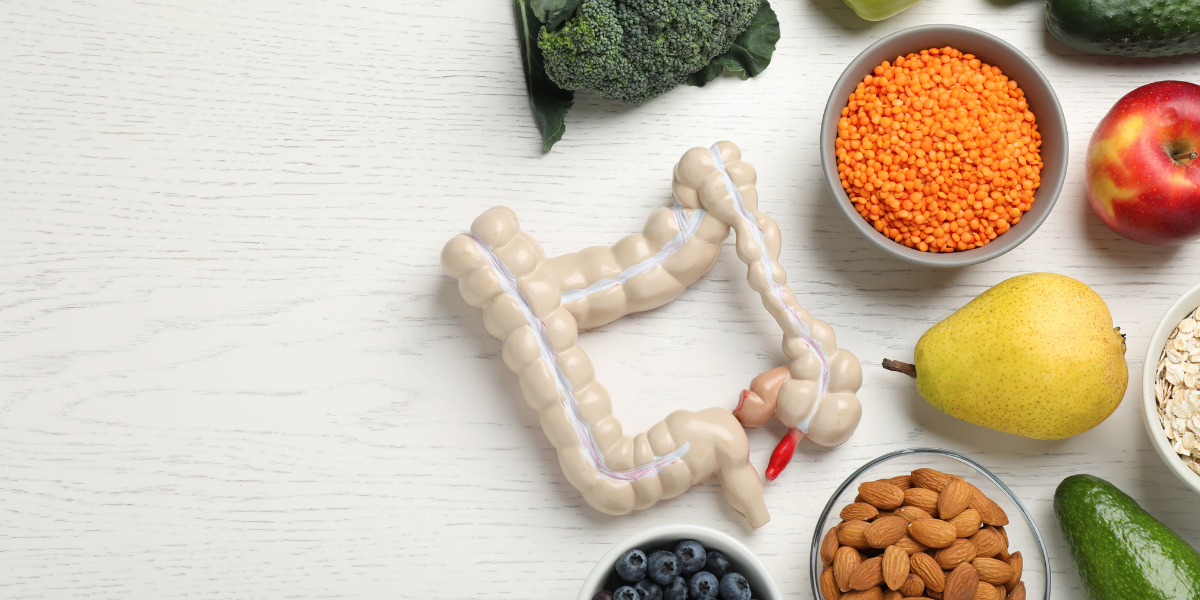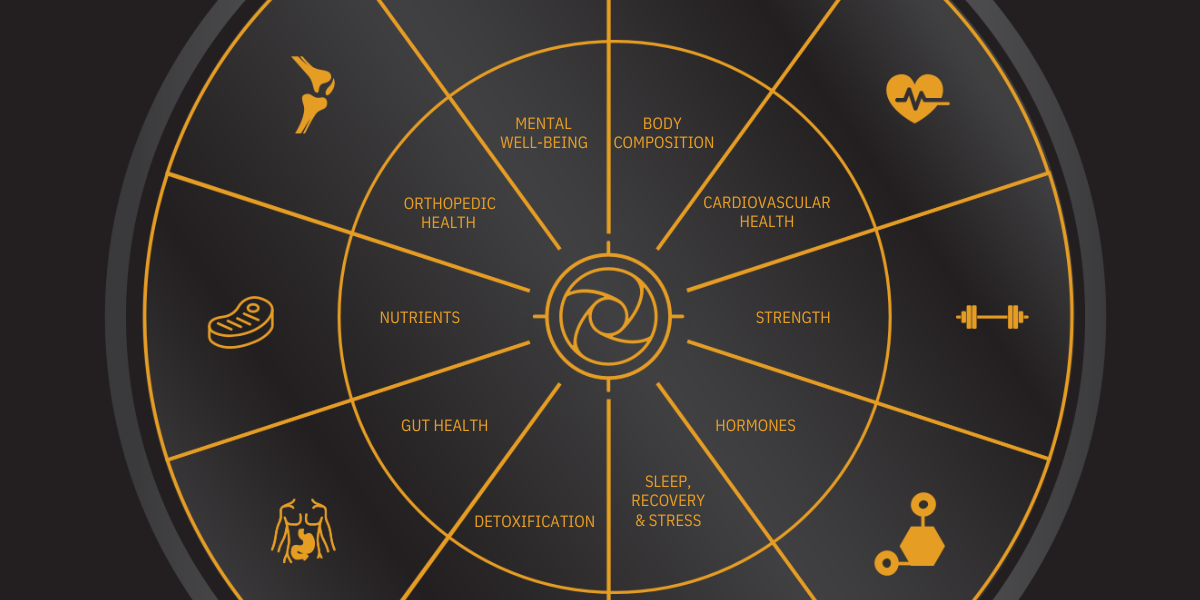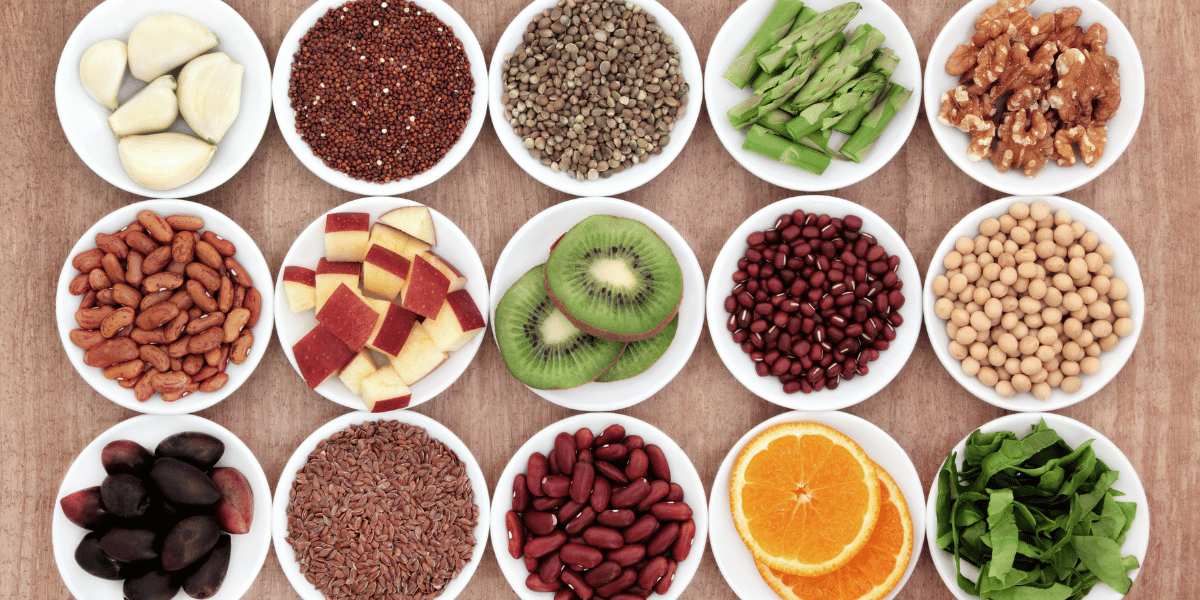Understanding the Wheel of Health: Stark's Comprehensive Approach to Well-Being
At Stark, we believe that true health encompasses far more than just physical fitness. It's about achieving a harmonious balance across all aspects...
.png?width=70&height=70&name=Stark_LogoMark%20(1).png)

The old adage "you are what you eat" has guided countless individuals toward healthier dietary choices. However, the truth is far more complex. One could consume a perfectly balanced diet, but if the digestive system is not up to par, those valuable nutrients may pass right through us without being properly absorbed. Here is your comprehensive guide to understanding the intricacies of gut health and digestion, and how proper absorption of nutrients could be the missing piece in the puzzle of your well-being.
Digestion is a complex process that begins the moment food enters the mouth and continues through to the absorption of nutrients in the small intestine, and eventually, the formation and elimination of solid wastes.
Mechanical digestion begins in the mouth as food is crushed and mixed with saliva, which contains enzymes that break down carbohydrates. The resulting ball of food, called the bolus, travels down the esophagus to the stomach.
Once in the stomach, the bolus mixes with the highly acidic gastric juices and the churning stomach muscles begin the process of chemical digestion. This creates a thick liquid known as chyme, which gradually moves into the small intestine for nutrient absorption.
Most digestion occurs in the small intestine and nutrients are absorbed into the bloodstream. Digestive juices from the liver and pancreas aid in this process. Once the small intestine has extracted nutrients, the remaining material moves into the large intestine, where water and some vitamins are absorbed before the waste is eliminated from the body.
Digestive problems can arise from a variety of causes, ranging from the foods we eat to more serious medical conditions. The primary culprits that can lead to improper digestion tend to include:
An interruption in the proper breakdown and absorption of nutrients can lead to several health issues like acid reflux, heartburn, constipation, and diarrhea, all of which can be symptoms of a larger digestive issue.
Vitamins, minerals, and other essential nutrients are vital for the body to function properly. Poor digestion can lead to deficiencies in these nutrients, which can manifest in various symptoms, depending on the extent of the deficiency.
Improving digestive health so that your body is better ableto utilize nutrients is often a matter of making lifestyle changes that promote the effective breakdown and absorption of food. The 'gut microbiome' refers to the trillions of helpful bacteria that live in the digestive tract. Consuming a diet rich in fiber and fermented foods can help feed these microbes, keeping them in balance and aiding digestion.
Drinking plenty of water during the day and consuming meals slowly and mindfully can also help the digestive process work more efficiently, as more time is taken to properly chew and break down food. Regular exercise can promote regular bowel movements and reduce stress, which has been shown to negatively impact digestion. Stress management techniques such as yoga and meditation can also play a key role in maintaining a healthy gut. If you are on any medications, also be sure to check with your doctor if there are any side effect that may impact your gut microbiome or digestion.
Our understanding of digestion and the vital role it plays in overall health has evolved. It's no longer enough to focus solely on the nutrients we consume; rather, we must ensure that our body is absorbing these nutrients effectively. By maintaining digestive health, we can optimize nutrient absorption and, subsequently, our well-being. Remember, digestion is not just about what you eat, but what you absorb.

At Stark, we believe that true health encompasses far more than just physical fitness. It's about achieving a harmonious balance across all aspects...

Are you feeling tired, bloated, or suffering from frequent headaches? Have you experienced sudden weight gain or changes in your skin? If so, it may...

In the ever-evolving landscape of nutrition, the quest for a healthier lifestyle often leads people to explore the intricacies of their dietary...